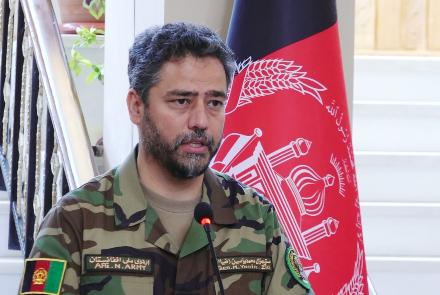Security Officials: Taliban Failed to Achieve Its Military Target

Afghan security officials on Saturday said that the Taliban used their highest strength in the past week to takeover some strategic areas in at least six provinces of the country, but security forces repelled their offensives and foiled all their planning and military agendas.
General Yasin Zia, the Afghan Chief of Army Staff and Acting Minister of Defense, said that over 1,000 Taliban fighters have been killed and wounded in encounter with the Afghan security forces during this period in Kandahar, Helmand, Farah, Herat and Baghlan provinces.
Zia however did not provide any detail about the casualties among the government forces.
But the Taliban have rejected their casualties.
Zia said that the Taliban will not be able to take power militarily.
“The enemy had the same intention, therefore they increased their pressure, it was their highest strength. They don’t have not more power than this,” said Ahmad Zia Saraj, the head of National Directorate of Security (NDS).
National Security Adviser Hamdullah Mohib said the international community will continue its support to Afghanistan after the withdrawal of foreign forces.
“World countries will continue their assistance, including the United States,” said Mohib.
This comes as US special envoy Zalmay Khalilzad on May 7 said that the United States will stand with Afghans who support the Republic if the Taliban do not choose peace.
He made the remarks after concluding his trip to the region in which he visited Tashkent, Doha Kabul and Dushanbe. He said that he attended a meeting with their allies in Berlin.
Echoing a joint statement released after the meeting in Berlin on Friday, Khalilzad said in a tweet that “if the Taliban do not choose peace, a future based on consensus and compromise, then we will stand with Afghans who strive to keep the Republic intact.”
But he reiterated that “Republic political unity is a must.”
Khalilzad said that there is a unique international consensus for peace, rooted in the support for a negotiated settlement, an end to violence, and rejection of any attempt to impose a military solution.
